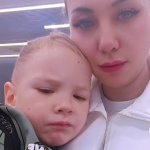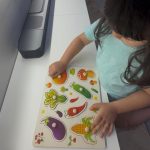Parenting a Child with Autism
The impact of Autism Spectrum Disorders (ASD) on social, communication, and behavioral skills ranges from mild to severe and varies in each child. These traits appear in early childhood, and how a child responds to them greatly influences the parenting process.
First and foremost, it is important to consult with medical professionals if there are initial concerns that autism may be affecting the child’s development. Then, several courses of action can be considered.
- Planning
A detailed assessment of the child’s skills based on their age and ability level is aimed at improving:
- Communication
- Socialization
- Life skills
- Motor skills
- Academic performance
Applied behavior analysis (ABA) therapy for autism is a lengthy and step-by-step process, where the child progresses from simple tasks to more complex ones. The goal is to provide the child with the opportunity to develop skills that will help them lead an independent life and achieve success in adulthood.
- Social Skills
This primarily focuses on teaching the child how to interact with others. Group therapy sessions are one method used, which may include simple plays or music depending on the child’s interests.
- Life Skills
Autistic children need support in developing life skills that will help them feel more confident in society, at home, at school, and in public places. Initially, this involves teaching basic tasks such as dressing, hygiene routines, using the toilet, and eating. Once these skills are mastered, the focus can shift to preparing meals, cleaning, and other abilities necessary for independent living in adulthood.
- The Role of Parents
The main role of parents is to create conditions where the child can develop according to set goals, spending as little time as possible while avoiding excessive stress. Parents must monitor the child’s emotional state, report any changes, and make efforts to ensure that learning life skills is enjoyable. This may require frequent use of play-based learning methods.
Such activities are beneficial both practically and as a method of development, but unfortunately, they cannot cure the child’s autism or its symptoms. Currently, the only way to achieve this is through cellular therapy—a groundbreaking technology based on stimulating the body’s regenerative powers via stem cell transplantation. The uniqueness of stem cells lies in their ability to transform into any other type of cell and replace damaged ones due to genetic or external causes with healthy counterparts. Shortly after the procedure, the results become evident—the brain and nervous system begin to function as intended by nature. The positive effect lasts for an extended period, often permanently, enhancing the effectiveness of other autism symptom correction methods.
The safety and reliability of this approach have received highly positive evaluations. It is now being used in leading clinics worldwide and may become the primary treatment in the future. The Mardaleishvili Medical Center, a leader in stem cell transplantation for autism treatment, offers this therapy. The extensive successful experience of its highly qualified doctors and state-of-the-art equipment ensures the best therapeutic results. The center’s services are more affordable than in other countries, and additional help is available for travel planning and accommodation arrangements if needed.
Fill out an application for cellular therapy—it is the best way to combat autism!
Autism Treatment Center Videos
Autism treatment with own stem cells
Cord blood association congress
International Quality Crown
Autism Treatment Reviews
Autism treatment with own stem cells
The story of Alessandro (6 years old)
Autism Patient Testimonial - Stem Cell Treatment
Clients Testimonials

Lidiya — Elina’s mother Read More

Anna – Sasha’s mother Read More

Amirkhon’s father — Tokhir Read More

Dilana’s mother Read More

Irina and Stefan – Ilya’s parents Read More












